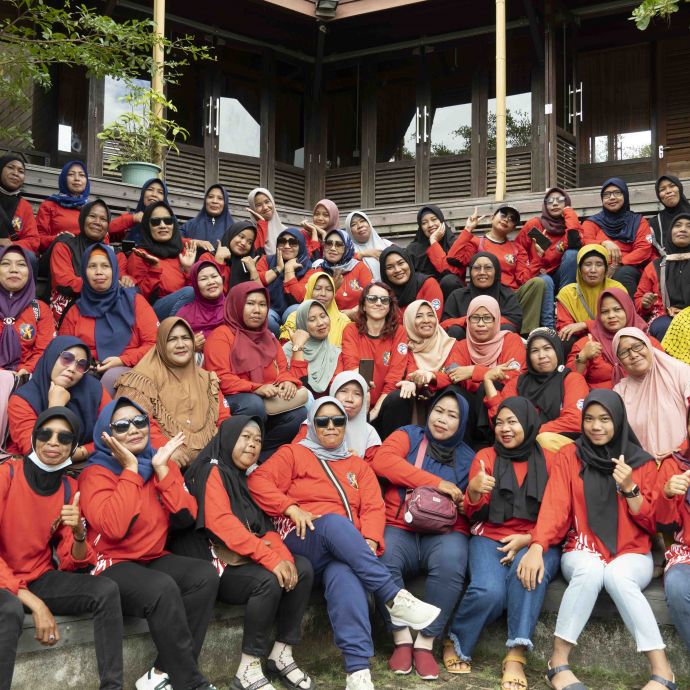


People
Intro
In order to protect and conserve threatened species and their habitats, with IARconserves we look into what is causing them to be at risk and try to find lasting solutions to the challenges they face. In the case of orangutans and slow lorises in Indonesia, for example, the answer lies in working to support, educate, empower and engage the communities living within and around the primates’ rainforest home.
In Indonesia, our partners teach communities WHY it is important to protect the forest and HOW it can be done in a way that benefits them, so that they no longer need to rely on illegal activities that destroy the forest and its ecosystems in order to feed their families.
Stats
Our Solutions
Through our partnerships with community leaders and government agencies, we have been able to provide resources and support to ensure that children in remote areas have access to quality education. We have also been able to promote sustainable land use practices and raise awareness about the negative impacts of deforestation. By empowering local communities to take ownership of their natural resources and work towards a more sustainable future, we are helping to protect the rich biodiversity of the rainforest and preserve it for future generations.
-
Children/Young People
Scholarship Programme
Our scholarship programme enables young people to access high school education. Children from very remote areas are often unable to travel to and from secondary school. Through the scholarship programme each student is provided with a bike and for children that are further isolated, our programme covers boarding costs to ensure that no one is left behind. We are currently covering education costs for 28 young people, with 11 graduates. These graduates now plan to either go on to pursue further education (many now aspiring to become doctors, midwives or teachers) or will be signed up to support IAR’s education programme to give every young person the opportunity to end the cycle of illegal activities in their community.
Access to Literacy
This project aims to engage with children who are not in school. We work with schools in very remote villages to engage the children and keep them busy through a number of organised activities that promote learning and literacy skills. In addition to going in and working with these communities and children directly, we have set up libraries in a few remote villages and have donated laptops to encourage and enable an atmosphere for learning and skill development. This is vitally important because if children are not inspired to get an education, they will be illiterate and much more likely to engage in illegal activities such as logging and hunting. This project also works to provide literacy education to women who did not have the opportunity to learn when they were growing up.
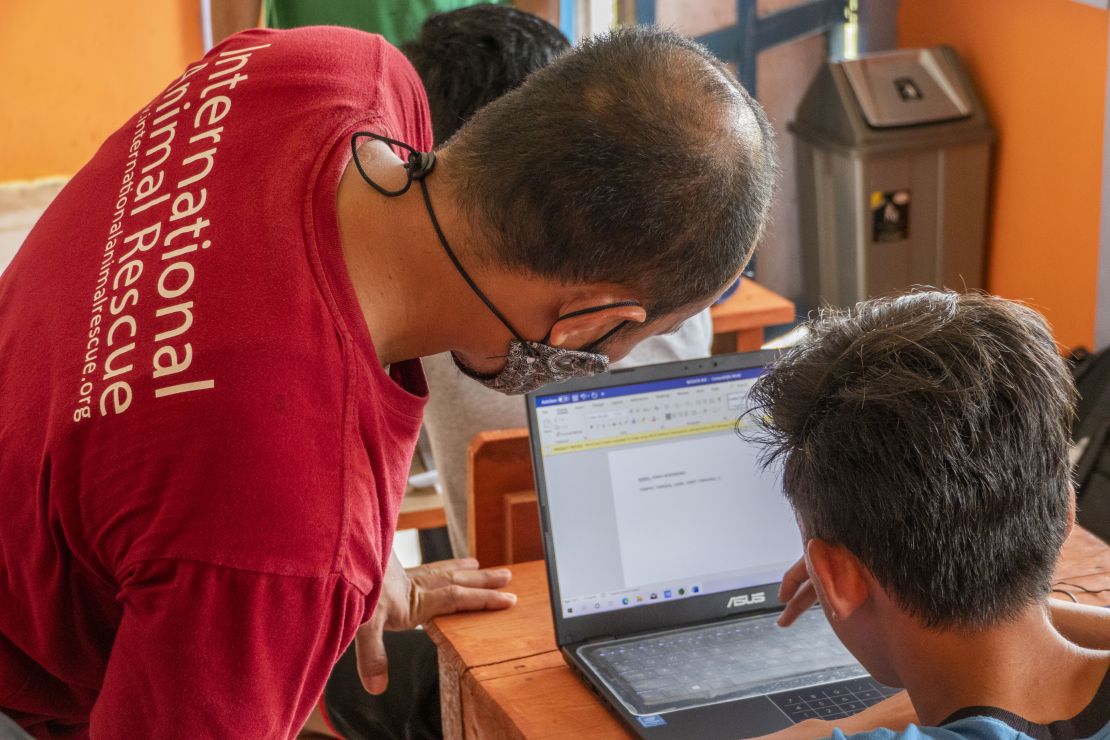
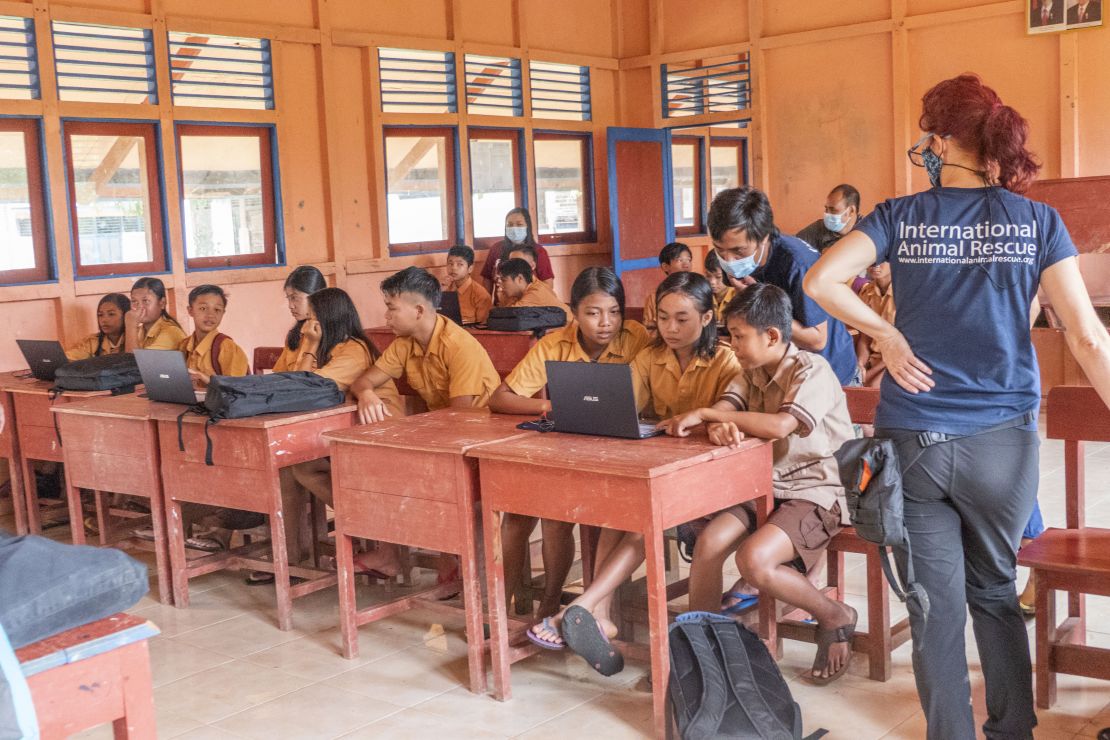
The Learning Centre
Our orangutan rehabilitation centre in Ketapang is home to “The Sir Michael Uren Learning Centre” which is a hub of education, learning, community development, celebration and spirit. The vision for the centre is to bring together local communities, the private sector, academic research institutions, as well as government and non-government organisations, to build a better future for people and nature. The mission for the centre is to build awareness, knowledge and ability through research and education to protect the environment and enable sustainable growth in Ketapang Regency. The centre opened in 2019 and is already a hub of activity and passion.
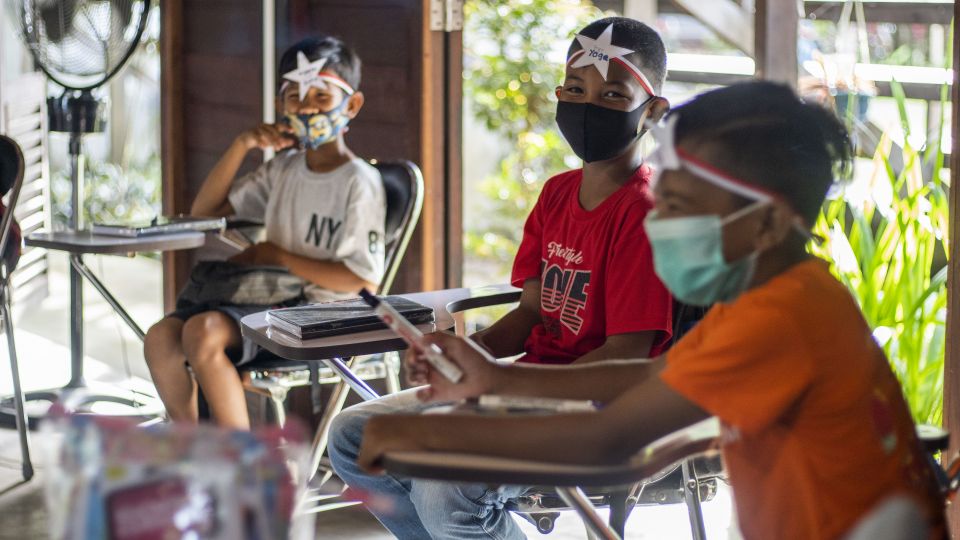
-
Gender Empowerment
We are passionate about empowering women to play a part in protecting the forests they call home, for their families and for the future.
Reforestation with Pandanus Pots
Many of our forest restoration projects in Indonesia are female led and focus on providing opportunities and support for local women to empower them to be economically independent and increase awareness of their basic rights.
Traditionally, in these project areas, women are predominantly responsible for the household chores and aren’t given the opportunity to contribute to the household income. We employ women at our nurseries to grow the trees from seeds to saplings. The seeds are picked from the forest and grown in pots made of pandanus leaves.
These pandanus pots are a new initiative from the team in Indonesia. The leaves of the pandanus plant are long, strong and great for weaving! And because of their naturally porous nature, there is no need to drill holes for drainage which saves on labour. Pandanus leaves also keep the seedlings at a cooler temperature and are naturally biodegradable - meaning no need for nasty plastic pots!
In addition to employing the local women to nurture the seedlings, we also purchase the pandanus pots directly from them, providing an additional source of income. By providing these women with the tools to generate income, they can contribute towards family earnings and have greater economic independence. This in turn allows their family to have better access to education and healthcare.
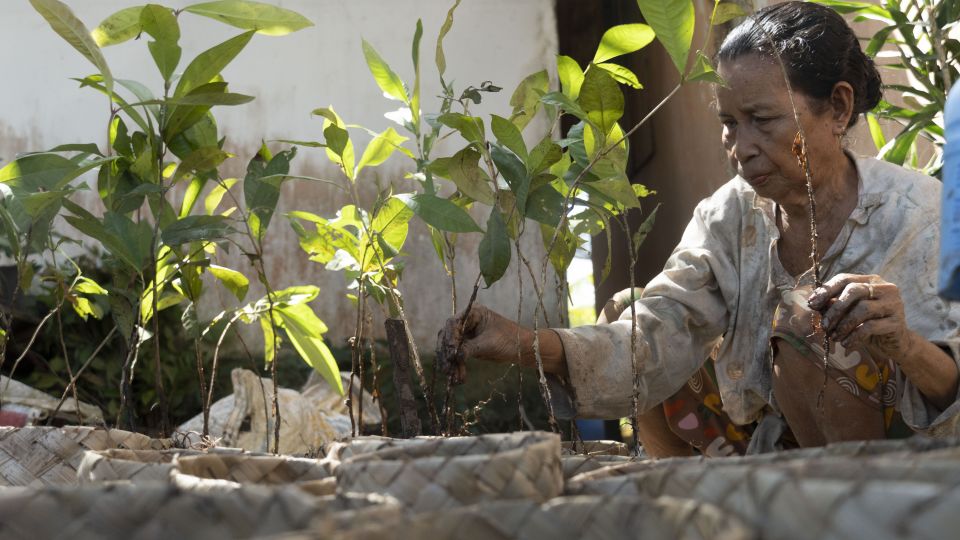
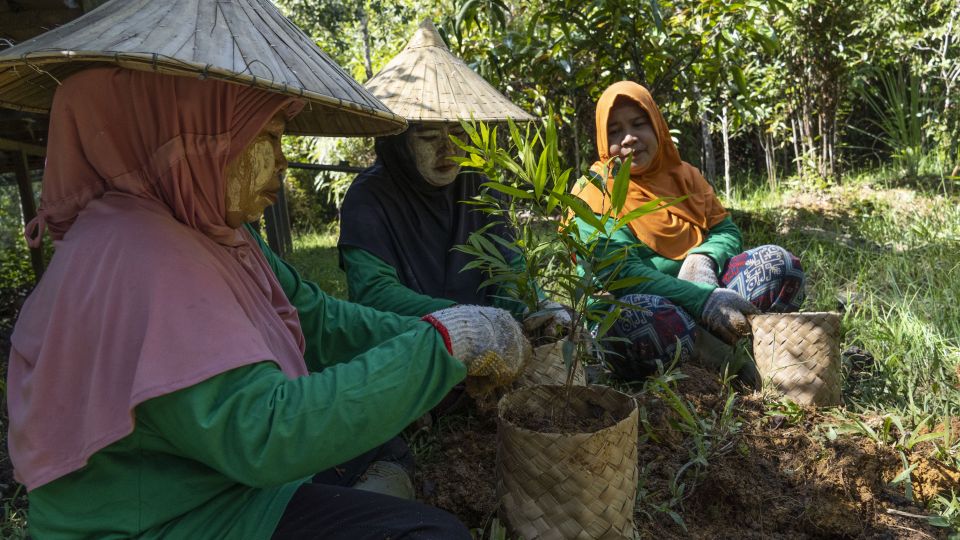
The Power of Mama
The Power of Mama is a new community development and gender empowerment initiative which is inspiring local women to play an active role in forest fire protection. Fires are now thought to be one of the biggest risks to the rainforest and to the survival of the orangutan species. Although only recently established, The Power of Mama is now a 40 strong group of female only fire fighters ranging from 25 - 50 years in age.
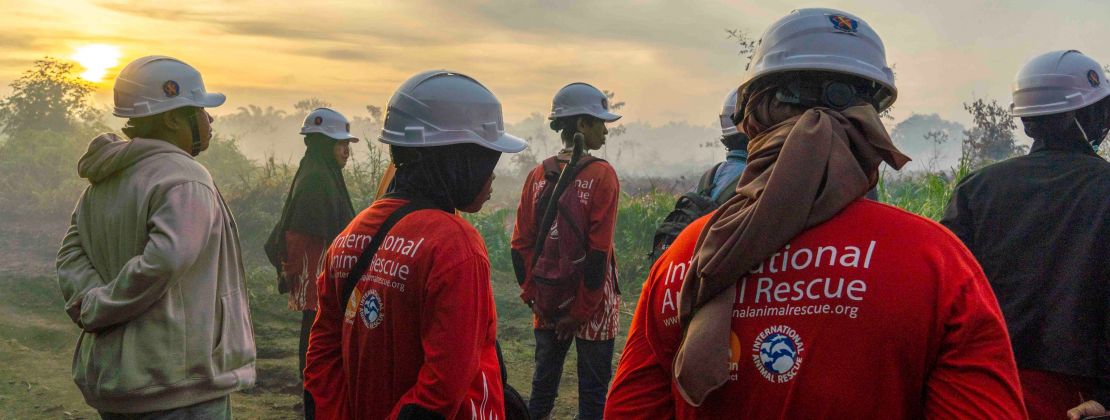
-
Community Development
We are passionate about finding solutions to social/economic issues at local levels. The approach depends on culture in the area and we take time to fully understand the needs of the people. A huge part of the success of our community development projects is owing to the trust we have built. Our projects stand out from the crowd because the team on the ground is genuinely and fully committed to the communities and work with them to find solutions that work and last. Our initiatives are backed up by data, science and research and keep the communities at the heart. By building this trust, we can develop strong relationships with the communities that we depend on to keep rainforests and habitats safe
Village Regulation
We are working to introduce village regulation into a number of villages in the local area. Village regulation gives villages more power and legal standing, thus allowing them to access government funding and support that would otherwise not be available to them. Village regulation works with the communities to establish a set of village law and, as a part of this, we ensure that environmental management and forest protection is included in these regulations. Village regulation helps villages gain independence and empowers them to improve their lives and protect the environment around them.
Agricultural Support Programmes
We are supporting villagers living in areas where illegal mining has caused massive social and economic problems (in addition to being a huge threat to orangutans.) These villages receive no support from the government and have no access to agricultural technology or knowledge/education. Our initiative provides access to these benefits, as well as teaching organic farming and sustainable agriculture techniques.
In addition to supporting these people, the difference that teaching these techniques has made is massive and the results, even in just the first six months, speak for themselves. Before, each paddy rice harvest would produce approx. 950kg and now, thanks to this project, each harvest is yielding 2,800kg, leading to food security and economic growth. This change took just six months, showing that education and knowledge transfer is vital to support these communities.
In another location, an area which is often badly affected by forest fires and burns easily, by working with the local people, we have turned unproductive high fire risk areas into productive agricultural areas, harvesting paddy rice, sugar cane and vegetables. This has already provided a livelihood for more than 30 households in the local area and is having a huge economic impact.
In addition, as farmers are now doing daily patrols, the incidence and risk of fires has been significantly reduced. 50% of these villagers used to be active loggers - but now make more money from agricultural activities so no longer need to depend on illegal activities to provide for their families.
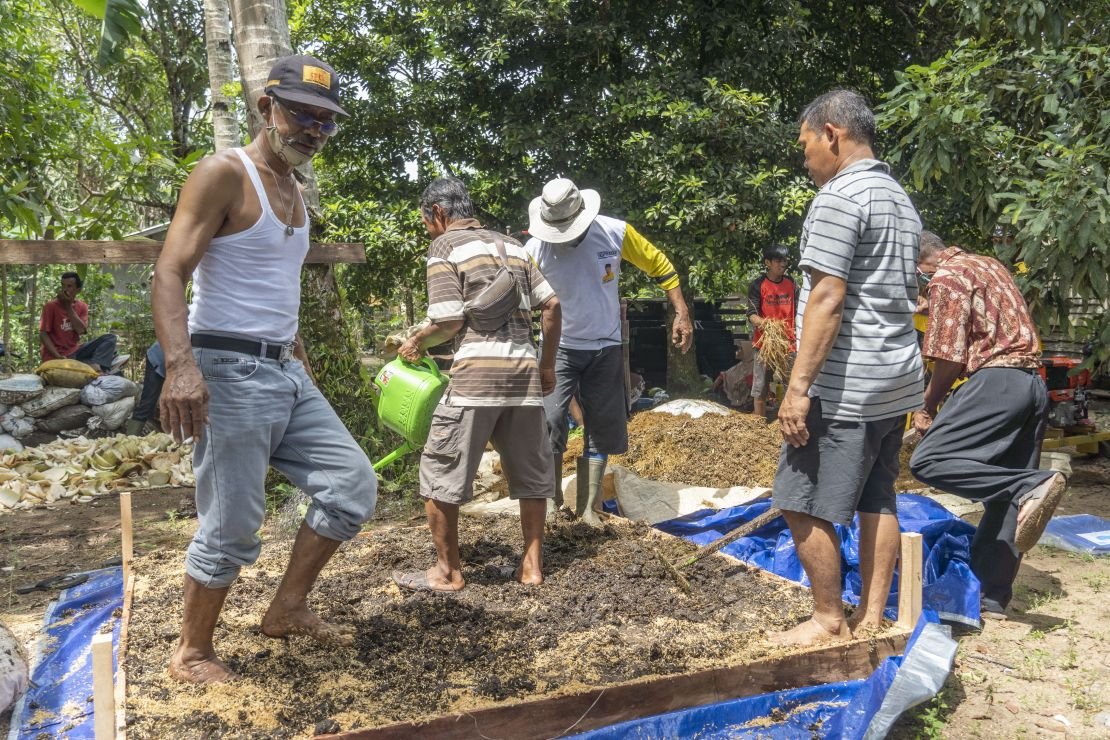
A Vegetable Boat
A new and highly successful project is our ‘vegetable transportation system’ (aka. A boat!). People in the local communities often turn to illegal activities that negatively impact the rainforest and wildlife within it (such as logging and hunting) to make the money they desperately need to provide for their families. Although there is a need for vegetables at the markets in nearby towns, villagers were not making enough money from supplying these vegetables as they would have to pay large sums and queue for very long periods to use the boats that travel from the villages to the markets. This long wait would lead to heat damage to the vegetables, meaning that they would be wilted and ruined upon arrival at the markets and would not be worth as much.
As an easy solution, we provided a boat that was available to them at all times. The villagers pay a small fee to use this boat and the money goes straight back into the community (and to the boat driver). Now, they can return to traditional farming and without the high costs and long waits, they are able to make a much higher profit from their vegetables. In just five/six months since the project began the community has already made enough back to cover the costs of setting up this project, in addition to having a substantial amount in the pot. They are now self-sufficient and independent, indicating that this initiative can be taken to other villages.
This project seems so simple but demonstrates that, by gaining an understanding of exactly what communities need and want, it’s possible to find solutions that really work and are sustainable.


